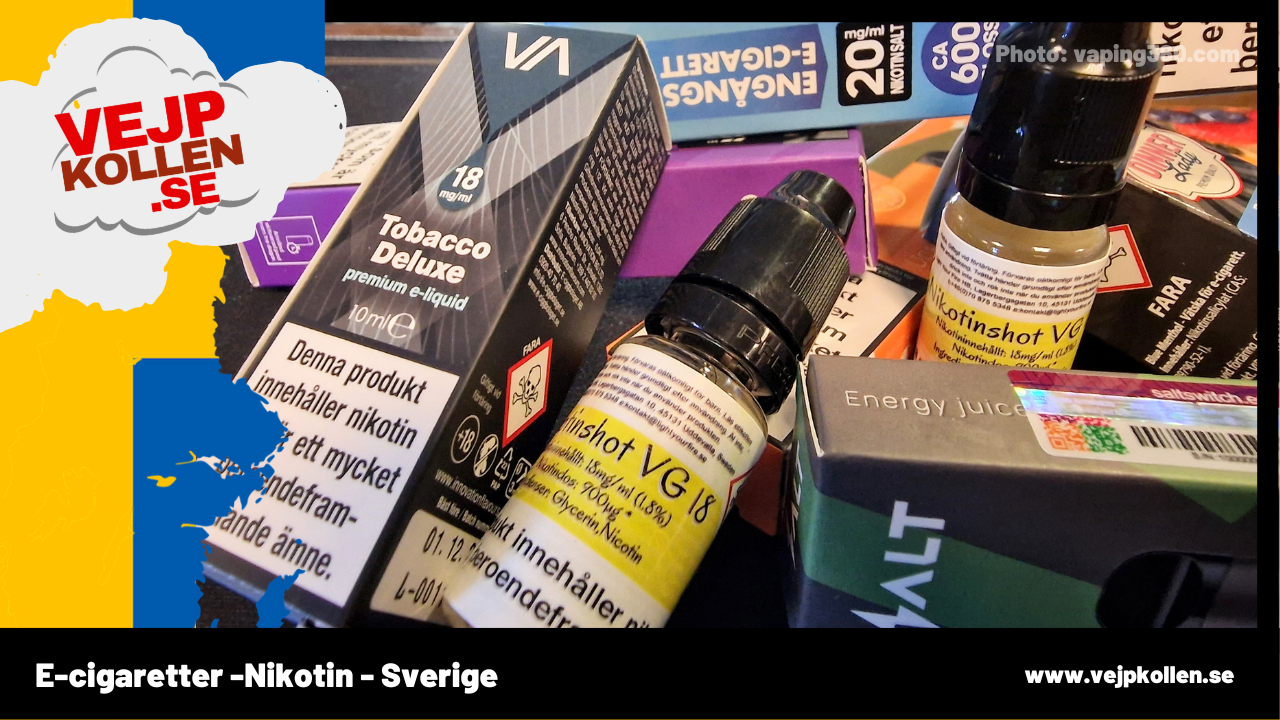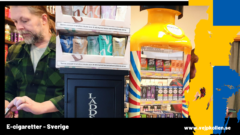The European Commission is likely to propose an EU-wide tax on e-liquid before the end of the year. This is reported by the magazine Vapolitique.
"This could have consequences in Sweden, even though we already have the tax that the EU is likely to propose," says Niklas Linder of the Swedish Electronic Cigarette Association.
According to various media leaks, several proposals are on the table. One of them is similar to the e-juice taxation system already in place in Sweden. This means that e-liquid would be taxed at two different concentration levels. Corresponding to SEK 2 per millilitre if the concentration is less than 15 mg/ml and SEK 4 per millilitre if the concentration is higher (up to the maximum limit of 20 mg/ml).
"If this system is introduced at EU level, a bottle of e-juice will cost more than a packet of cigarettes in countries like France." scribe Vapolitics.
Veto of excise duty on snus
The upcoming revision of tobacco taxes attracted attention, particularly in Sweden, in the autumn of 2022. It was reported that Swedish snus would also be taxed like other tobacco products in the EU. As snus is a product that can only be sold in Sweden, Swedish EU delegates protested and used a veto to force the Commission to back down.
"We will actively work to improve public health and reduce tobacco consumption, but we will stand up for Swedish snus. I hope the government will stand up for Sweden's exemption and reject the shock increase." Niklas Karlsson (S), chair of the Parliament's tax committee, said to magazine Aftonbladet.
No lower taxes in Sweden
It is unclear whether the new nicotine tax would affect the prices of e-juice (including disposable models) in Sweden. The proposed system is already in place on the Swedish market, and according to Niklas Linder, active in the Electronic Cigarette Industry Association (BELC), a harmonised tax directive could even reduce prices.
"But probably every country is free to have higher taxes than the directive specifies. I wouldn't expect Sweden, of all countries, to lower its taxes just because it would be possible to do so," says Mr Snyder. Niklas Linder.
From 20 to 14 mg/ml
At the same time, it can have consequences in other ways. Since the taxes on different nicotine strengths introduced, manufacturers and retailers have progressively changed the range by reducing the nicotine strength of pre-mixed e-juices. From a standard of 18-20 mg/ml, the standard is now 14 mg/ml - all to reduce the price at the counter.
"If the EU draws the line between low and high differently from Swedish legislation (at 15 mg/ml), many manufacturers and importers here risk being disappointed as the point of newly notified 14 mg/ml products disappears." says Niklas Linder.





Fuck the snuff